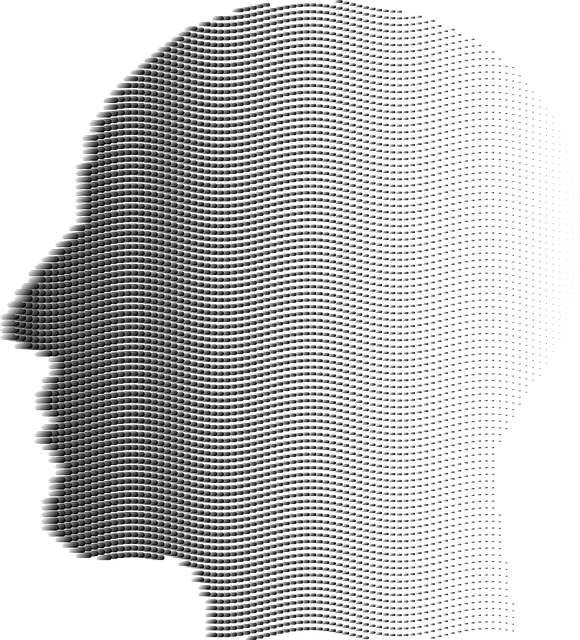Northglenn Psychosis Therapy leverages robust data analysis to transform patient care. They collect diverse mental health data through EHRs, surveys, and social media, cleaning and organizing it for accurate interpretation using standardized formats. Advanced statistical methods and machine learning algorithms reveal complex patterns, enabling personalized interventions and targeted community initiatives like depression prevention. This data-driven approach ensures each patient receives tailored support, enhancing recovery outcomes while fostering mental health literacy in Northglenn. Ethical practices and technology advancements, including AI, are crucial for protecting patient privacy and ensuring accurate diagnoses, particularly for marginalized communities.
Mental health data analysis has emerged as a powerful tool for understanding and improving patient outcomes, particularly in Northglenn psychosis therapy. This comprehensive guide explores the intricate process of collecting, preparing, and analyzing mental health data using advanced techniques. We delve into interpreting results to provide actionable insights, while also addressing ethical considerations and highlighting future trends in this rapidly evolving field. By the end, readers will grasp the significance of data-driven approaches in enhancing Northglenn psychosis therapy practices.
- Understanding Mental Health Data: Collection and Preparation
- Advanced Techniques for Data Analysis in Psychosis Therapy
- Interpreting Results: Translating Data into Actionable Insights
- Ethical Considerations and Future Trends in Mental Health Data Analysis
Understanding Mental Health Data: Collection and Preparation

Understanding Mental Health Data is a crucial first step in any analysis process, especially for Northglenn Psychosis Therapy and other mental health services. The collection of data begins with patient consent and involves gathering a wide range of information, including medical history, symptoms, treatment plans, and progress notes. This data can be sourced from various channels like electronic health records (EHRs), surveys, interviews, and even social media interactions, offering a comprehensive view of an individual’s mental wellness journey.
Preparation of this data involves cleaning and organizing the information to ensure accuracy and consistency. This step is critical in removing any errors or biases that might have crept into the collection process. Standardized formats and protocols are employed to facilitate meaningful interpretation, enabling healthcare professionals and researchers to gain valuable insights into mental health trends, identify at-risk groups, and inform the development of effective communication strategies like those used in the Mental Wellness Podcast Series Production. Additionally, proper preparation supports evidence-based practices, aiding in the prevention of depression and other mental health issues, as advocated for in Depression Prevention initiatives.
Advanced Techniques for Data Analysis in Psychosis Therapy

In the realm of Northglenn psychosis therapy, advanced techniques for data analysis play a pivotal role in enhancing treatment outcomes. Professionals employ sophisticated statistical methods and machine learning algorithms to unravel complex patterns within patient data, enabling more personalized and effective interventions. By analyzing various factors such as symptom severity, treatment adherence, and lifestyle variables, therapists can identify specific areas of focus that may have been previously overlooked.
These cutting-edge approaches not only facilitate the assessment of traditional psychosis symptoms but also shed light on associated conditions like anxiety relief and stress reduction methods. Moreover, data analysis aids in evaluating the efficacy of social skills training programs, which are integral to comprehensive therapy. Through data-driven insights, Northglenn therapists can adapt their strategies, ensuring that each patient receives tailored support for a successful recovery journey.
Interpreting Results: Translating Data into Actionable Insights

When analyzing mental health data, the ultimate goal is to translate numbers and trends into actionable insights that can drive meaningful change. Interpreted correctly, this data offers a powerful tool for improving mental wellness in communities like Northglenn Psychosis Therapy. By identifying patterns and risk factors, therapists and researchers can develop targeted interventions tailored to specific needs. This precision approach ensures that resources are allocated effectively, making a significant impact on Depression Prevention and the overall public awareness campaigns development.
For instance, data analysis might reveal heightened rates of anxiety among young adults in Northglenn. Armed with this knowledge, local therapy centers could adapt their services to better cater to this demographic, offering specialized programs or adjusting existing treatments. This proactive approach not only addresses immediate concerns but also fosters a culture of mental health literacy and resilience within the community.
Ethical Considerations and Future Trends in Mental Health Data Analysis

As mental health data analysis becomes increasingly sophisticated with advancements in technology, ethical considerations gain paramount importance. The privacy and confidentiality of sensitive patient information must be rigorously upheld, especially as data sharing and collaboration among healthcare providers and institutions become more common. This involves implementing robust security measures to protect against unauthorized access and ensuring informed consent processes that are transparent and voluntary. Furthermore, the potential for bias in algorithms due to imbalanced or non-representative datasets should be carefully monitored, as this could lead to inaccurate diagnoses or ineffective treatment recommendations, particularly for marginalized communities.
Looking ahead, the future of mental health data analysis holds promising trends. Integration of artificial intelligence (AI) and machine learning can enable more accurate predictions of mental health outcomes and personalized treatment plans. Wearable devices and mobile applications are also poised to play a significant role in early detection and remote monitoring, allowing for timely interventions. Additionally, leveraging Mental Health Education Programs Design and Self-Awareness Exercises, powered by data insights, can equip individuals with coping mechanisms and promote burnout prevention strategies for healthcare providers, ultimately enhancing overall mental well-being within communities, including Northglenn psychosis therapy settings.
Mental health data analysis plays a pivotal role in enhancing Northglenn psychosis therapy. By understanding, collecting, and preparing relevant data, therapists can employ advanced techniques to gain profound insights into patient conditions. Interpreting these results allows for tailored interventions and improved treatment outcomes. As technology advances, ethical considerations must guide the integration of data analysis trends while ensuring patient privacy and confidentiality. Through responsible practices, mental health professionals can leverage data to revolutionize care delivery, ultimately fostering better lives for individuals seeking support in Northglenn psychosis therapy.








